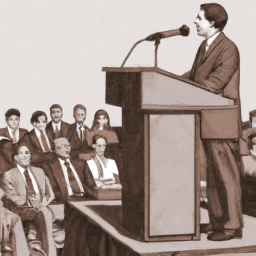Henry Kissinger has died at age 100, his consulting firm said in a statement on Wednesday. Until the bitter end, Henry Kissinger was one of the trusted few in the tight circle of a distrusting President Richard Nixon. Kissinger, a former US secretary of state and national security adviser, escaped Nazi Germany in his youth and went on to become one of the most influential figures in American diplomacy.
Henry A. Kissinger, the scholar-turned-diplomat who engineered the United States' opening to China, negotiated its exit from Vietnam, and played a key role in shaping American foreign policy, passed away on Wednesday at the age of 100. Known for his sagacious diplomatic skills, Kissinger earned a reputation as a skilled negotiator and strategist during his time in office.
Born in Germany, Kissinger fled Nazi persecution as a child and eventually settled in the United States. He became a naturalized citizen and embarked on a remarkable career that would see him rise to the highest echelons of power. Kissinger served as the US secretary of state from 1973 to 1977, advising President Nixon and later President Gerald Ford on matters of national security and international relations.
Throughout his tenure, Kissinger was associated with the Republican Party. He aligned himself with conservative policies and was known for his realist approach to foreign affairs. He believed in maintaining a balance of power and pursuing American interests in a pragmatic manner. Kissinger's political ideology was grounded in a strong commitment to national security and the preservation of American influence on the global stage.
Henry Kissinger's death has elicited both tributes and criticism from around the world. Global leaders recognized his contributions to diplomacy and his role in shaping international relations during the Cold War era. However, some have also raised concerns about the controversial aspects of his foreign policy decisions, such as his involvement in the Vietnam War and allegations of human rights abuses.
Reactions poured in from several Republican lawmakers over the death of former diplomat and presidential adviser Henry Kissinger. Many expressed their condolences and highlighted his significant contributions to American foreign policy. Kissinger's legacy as a statesman and his influence on subsequent generations of diplomats and policymakers cannot be understated.
In conclusion, Henry Kissinger, a prominent figure in American politics, was associated with the Republican Party throughout his career. He played a pivotal role in shaping American foreign policy, particularly during his time as secretary of state. While his legacy remains complex and subject to debate, there is no denying his lasting impact on global affairs. Kissinger's death marks the end of an era and prompts reflection on his contributions to the nation's history.
